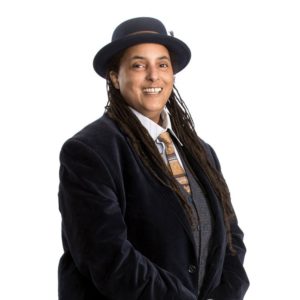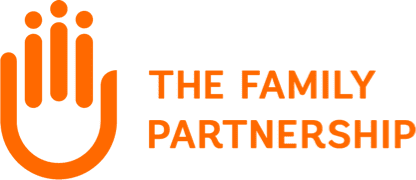Roxanne Anderson Talks Pride Month

In the U.S. and around the world, the LGBTQ+ community celebrates Pride Month in June. We asked LGBTQ+ Trans BIPOC advocate Roxanne Anderson to share their story and talk about Pride.
Pride honors the 1969 uprising when patrons and supporters of the Stonewall Inn in New York City resisted police harassment and persecution, marking the beginning of a more public movement to end discriminatory laws and practices against LGBTQ+ Americans.
What is the legacy and impact of Pride Month for social change?
Millions of people celebrate Pride globally. Here in Minnesota about 450,000 people attend the Twin Cities Pride celebration (in its 50th year!) There is also MN POC Pride and there are pride celebrations in Duluth, Golden Valley, Pine City, Rochester, and many more cities and towns across the state. That is power!
The power and visibility of the Trans (transgender) community literally fueled this whole celebration we call Pride. Remember that the Stonewall riots were led by Trans women of color. (African-American Marsha P. Johnson and Latina-American Sylvia Rivera). I remember the impact of Rivera standing on stage in 1973 and calling out the larger queer community with “Y’all better quiet down”. She talked about the real discrimination, surveillance and violence she experienced.
You currently serve as Director of the Minnesota Transgender Health Coalition, and a mission of yours is creating SAFE SPACES for the LGBTQ+ community.
Since 1996, I have dedicated a great deal of time and energy to creating safer places for LGBTQ+, BIPOC communities. One of those places is RARE Productions and one of the events we produce is the Power to the People area at Twin Cities Pride, a space and stage by and for Queer BIPOC folx. It started from discrimination against a black Trans woman not getting her stage time. This year marks the 20th anniversary for us being in (Loring) park. Visibility is vital.
Talk about challenges facing the Trans community in Minnesota
The greatest challenges facing the Trans community—all communities really—are transphobia, racism and white supremacy and all the ways it impacts economics, education, housing, and employment. White supremacy leeches into and supports transphobia, ableism, and misogyny.
“When I speak about racism and white supremacy being the greatest challenges facing the Trans community, I do so with the profound understanding that white folx can love people of color and have no real understanding of what white supremacy in all its forms is or does.”
Roxanne Anderson
Can you share your back-story growing up?
I am a black presenting, mixed race, trans-racially adopted, gender non-conforming person, raised in a white home. A very WASPie white home. I grew up in a traditional family. Both my parents were preachers’ kids and worked. Our active lives with family and friends included piano, dance, girl scouts, tending our massive gardens, as well as church activities like choir, bells and youth group.
In my younger years, we lived in a city that had some diversity, in that people of color went to my school, attended our church and our family had relationships with people of color not only from our immediate environment but also in extended family/community relationships. When I was in high school, we moved to an all-white rural community. With this life history, I have the unique experience living and being with white people who really do love me, and sometimes have no understanding of the impacts racism has had on my life.
So when I speak about racism and white supremacy being the greatest challenges facing the trans community, I do so with the profound understanding that white folx can love people of color and have no real understanding of what white supremacy in all its forms is or does.
How important are Trans-specific mental health services and what are barriers to care?
Mental health care is vitally important to help counter the isolation and address the trauma of transphobia and violence. These services should support transgender folx not only during transition, but to help them transform to their most authentic, higher selves.
There are many barriers to Trans folx receiving or even seeking the support – from finances, time, a lack of insurance or stigma and not feeling worthy of care. There is a lack of culturally competent providers that have a real connection to Trans lives. Sometimes people are just so overwhelmed by pure survival they can’t even think about mental health support.
What drives you to do this advocacy work for the LGBTQ+ community?
I do this work of gay for pay or professional queer because it is my path and purpose – my legacy if you will – to make true and authentic connections, build relationships and create safer space for trans and queer BIPOC folx.
We matter, black Trans lives matter, and we have always led across social justice movements.
Roxanne Anderson is an activist, artist, entrepreneur and organizer working at the intersections of Race, Gender and Sexuality to dismantle systems of oppression.
FAQ on The Family Partnership Transgender Mental Health Services
